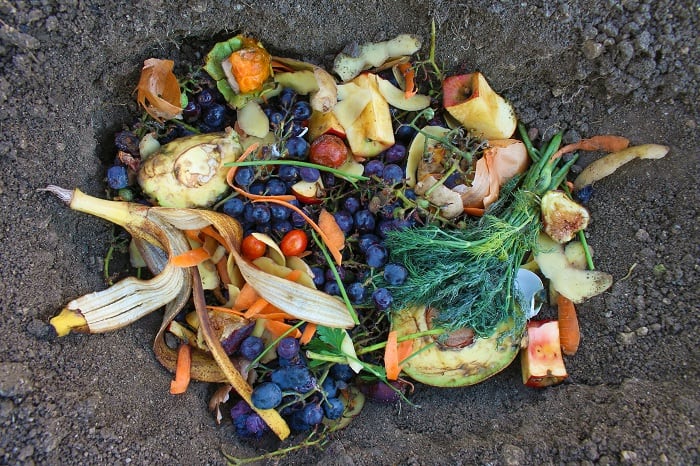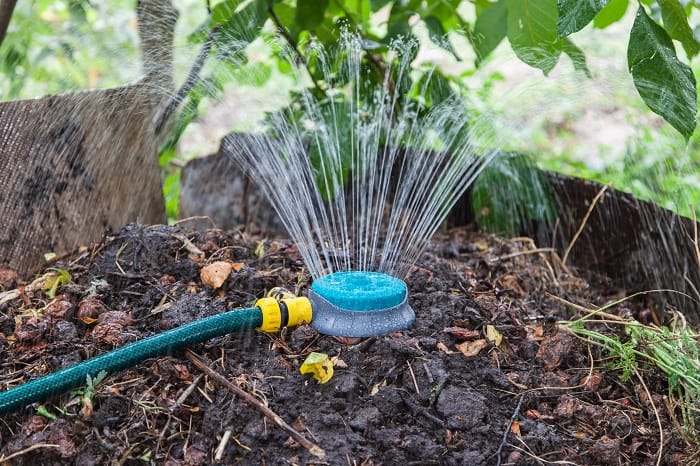Composting is the breakdown of organic materials, such as food waste, vegetable scraps, leaves, and plants, to a nutrient-rich
Don’t confuse yourself with compost worms and garden earthworms; they are totally different. Compost worms prefer to stay in the surface area with a damp environment, and they prefer to eat raw materials. Meanwhile, earthworms want to burrow themselves to the bottom of the
So, are worms in compost good or bad? Mostly, these composts worms are considered to be a gardener’s friend, and here are the reasons why.
Organic
The end product of decomposition from earthworms is 100% organic. No chemicals were used to speed up the composting process.

Introduction of Microorganisms
As the farm worms pass through the compost, microorganisms such as bacteria and other microbes are introduced into the
Good Growth
Gardeners noticed improved growth and a better production because of vermicomposting. It is believed that the earthworms release hormones which make the plant healthier and yield good root growth.
Healthful
The nutrients brought about by vermicomposting are raw which makes it easily absorbed by the roots. Due to worm mucus in the compost, vermicomposts are not easily flushed away, thus allowing plants to gain maximum nutrients from the
Retention of Water
Vermicomposts can retain more water than ordinary composts. This is beneficial especially in times of drought. While water from normal composts evaporates easily, water from vermicomposts evaporates at a slower rate, thus making it more accessible to plants.
Free Helpers
Farm worms are excellent free helpers in the composting process. They not only decompose food wastes and organic materials, but they also mix the compost at the same time.
Here are also some of the reasons why these worms pose as a threat to gardening:
Time-consuming
Approximately, it takes half a year for these worms to decompose the raw materials to make a healthy compost while an ordinary compost can just take three months with constant mixing.
Foul Smell
The University of Nebraska warns that vermicomposts usually has an earthy smell on its
Additional Capital
It is more expensive to set up vermicompost than a usual natural compost. It requires special materials like containers and lime to neutralize the acidity level of the compost. There are also instances wherein you have to buy special worms if the need arises.
Maintenance
Taking care of the worms is a much more tedious job than you think. Here are some things that need to be done:
Do not overfeed
Compost worms get overwhelmed easily. You should not put every organic waste you see in your kitchen, for the worms will not be able to keep up with it. Plus, we also don’t want a smelly garden after all. There is a theory that worms can eat with their weight in a day but a number of factors will still come into play, so there is a tendency that they may eat less than they should. Don’t feed your worms too much, it should be 2-3 days again depending on how much they can handle. Every feeding should be gone by 1-2 weeks depending on your worms and a lot of other factors involved.
Moisture of Bedding
Worms need enough moisture for them to endure. If you put too much water, then they may drown and your pit will have an awry smell to it. If you make it very dry, then the worms are likely to die. To test if there is enough moisture on your

Food
Ideally, worms prefer to eat less acidic food and vegetable leftovers in a smaller size. Cabbages take a lengthy amount of time to decompose. Salty, spicy, and processed foods can also spoil the bed emitting a foul smell to your compost. Avoid tomatoes, yogurt, and oily foods for they spoil faster. You can add coffee, tea, and even eggshells as they are preferred for the worms. Bear in mind to cut the food into smaller parts for it to break down at speed.
Worm Castings
Worm castings should be separated from the worms when harvesting the compost to leave beds for the worms to live. Tray-based bins may take only 10 minutes while the screen should take approximately 30 minutes to an hour while mounds usually take a day to prepare.
Pathogen problems
According to an academic journal published last 2001 titled “Bioresource Technology”, in natural compost, heat is emitted during the process of decomposition, thus making the environment impossible for weed and pathogens to foster. But in vermicompost, worms need enough moisture for them to survive. Thus, the
FAQ’s
Are worms in compost good?
Worms in compost are not only beneficial to the compost, but also to the plants. The worms eat and decompose organic matter. In this way, they make the compost more fertile and the plants grow better. You need to do it right though. Worms can be purchased, but if you don’t know what you’re doing, you may not get as good results. Worms are also very expensive to buy. They will eat everything and do a better job than most humans at composting.
However, there’s a reason why worms are considered the “poor man’s compost” – they do not produce heat, and can’t be used to warm beds. They do, however, break down organic matter much faster than we can.
Worms will eat any organic matter that is available to them, including leaves, grass clippings, vegetable scraps, fruit, bread, paper, and even cardboard boxes (if you have a big enough pile). They are like tiny little farmers, turning organic matter into rich, black soil.
So yes, worms are great for composting.
What is the role of worms in composting?
I think it’s more important to know what isn’t the role of worms in composting. The only thing they do that you can’t do yourself is break down wood and other cellulose material. They do this by eating the organic matter, breaking it down into smaller pieces and then excreting the breakdown products. This is known as anaerobic digestion. Anaerobic means without air.
Composting is the process of using living organisms to break down organic material and produce humus. In the case of composting, the worms are the organism that does the actual work. Worms eat organic matter, such as vegetable scraps, kitchen waste, grass clippings, and leaves. They then convert it into a form that can be used by plants, and they excrete a liquid rich in nitrogen and other nutrients.
Worms are not an absolute necessity for any composting system, but they will improve it. They will help aerate the pile, and they will help the compost get to the right temperature for good microbial activity. They can eat plant material that your chickens don’t, so they can be a nice way to supplement their diet.
Can you have too many worms in your compost?
You can have as many worms as you want. But, as others have said, the more you have, the less effective they will be at breaking down your compost. You also need to keep an eye on how much moisture your compost is getting. The more moist it gets, the less effective the worms will be. It also depends on how you use them and what kind of compost you are making.
Conclusion
Worms in composts have proved their valuable effect in composting. Although it has also its flaws, it is really up to the gardener’s decision whether he will make these worms as his allies or consider it as something bad in his gardening. How about you? Would you try vermicomposting? Or would you prefer the less-hassle way of composting? DO share your thoughts.





